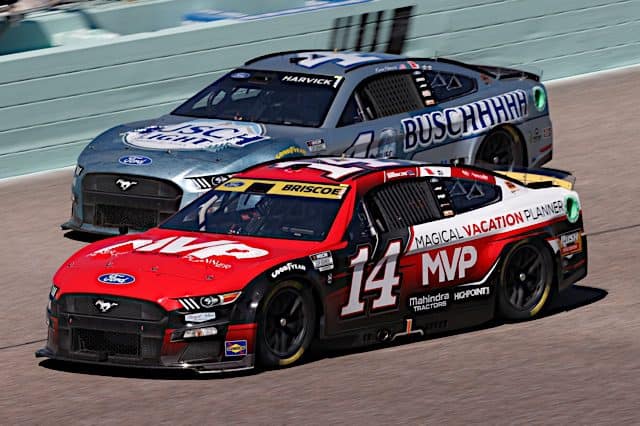This week, a big surprise hit the NASCAR world when Legacy Motor Club, the team co-owned by Chevrolet loyalists Maury Gallagher and Jimmie Johnson, announced it would be switching to Toyota in 2024.
The team, which still carries the legendary Petty No. 43 car in its stable, is fresh off of its second rebranding in as many years. Gallagher bought controlling interest of Richard Petty Motorsports following 2021, and then at the end of 2022, Johnson became a major investor of Petty GMS Racing. Richard Petty himself, although a spokesman for the team, does not hold any ownership interest anymore.
But this is not the first big surprise manufacturer change in NASCAR history, not by a longshot. Heck, it’s not even the most surprising one to feature Petty in the picture.
There are a total of three that stand above the rest, three that were big surprises at the time that ended up making huge impacts on the sport in the years to come.
Petty Enterprises from Plymouth to Ford, 1969
Although this move was reversed just a year later, the shock of Petty blue on a Ford was immense to many fans at the time.
The move was Petty’s call. Part of it was the disappointment over Plymouth’s offering of car compared to Ford. Then there was the dump truck of cash Ford backed into the Petty driveway.
It was a seismic shift for many Ford teams at the time. Holman-Moody, for many years the golden child of the blue oval, was unceremoniously knocked down the pecking order. Petty was the King, after all, and gobbled up a lot of the support Ford had earmarked for NASCAR.
David Pearson, driving for Holman Moody, was able to outduel Petty for the 1969 championship. But the writing was on the wall, in many ways. Ford had a racing budget of $12 million in 1967. For 1970, Ford had a racing budget of just $2 million, per Speed Sport.
Petty went back to Plymouth and its shiny new Superbird the next year, creating one of the most iconic driver-car pairings in NASCAR history. Holman-Moody became a shell of itself before pulling out of racing in 1973, much like Ford itself had after the 1970 season.
For many years, the way NASCAR worked was that car manufacturers would employ a contractor team, either officially (Chrysler, Hudson, Ford) or unofficially (General Motors was long rumored to be slipping money to owners such as Smokey Yunick and Ray Fox for big races).
The manufacturers would pour money into the teams and would collaborate with…
Click Here to Read the Full Original Article at …

